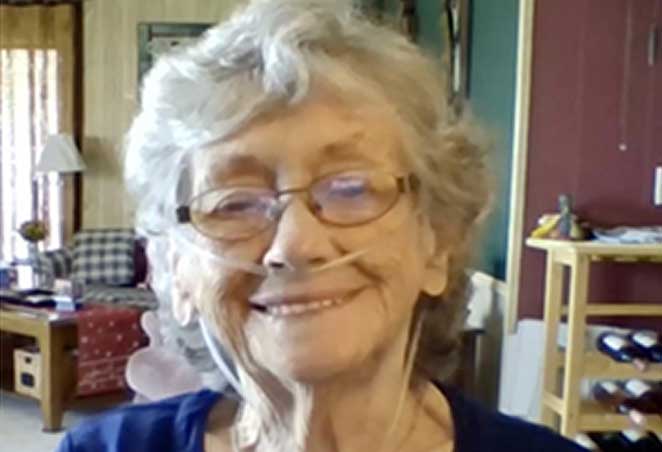Rethink COPD: Uniting for COPD Care Across the Globe
Discover what it means to unite science, collaboration, and advocacy to help advance COPD care
Regeneron
November 11, 2025
Chronic obstructive pulmonary disease (COPD) affects over 400 million people worldwide, yet the disease remains underdiagnosed, misunderstood and overlooked by the public.1
Studies have shown that 45% of the public cannot identify COPD as a lung disease, despite the disease claiming more lives annually than lung and breast cancer combined.2 This lack of awareness contributes to stigma, delayed diagnoses and slows progress in treatment and care. Misconceptions about COPD are a serious barrier to appropriate disease management, leaving the COPD community to struggle without adequate support or understanding.
Because COPD is a progressive disease, every exacerbation, or an acute worsening of symptoms, may lead to permanent damage to the lungs and may trigger more severe and more frequent exacerbations in the future. Worsening lung function can make people feel breathless and even contribute to difficulty speaking, which may isolate people from their families and communities.
But it’s not just the physical symptoms. COPD can also hinder daily routines and diminishes people’s ability to engage in everyday tasks. Activities like household chores can become exhausting, while hobbies that once brought joy, like dancing or gardening, may feel out of reach.
Caregivers of people with COPD also face their own struggles. Both patients and caregivers can struggle to navigate the complexities of the disease often without sufficient support or understanding from those around them.

At Regeneron, we collaborate with the healthcare community to help advance scientific understanding of the underlying role different types of chronic inflammation play in disease progression, which has paved the way for innovative approaches to disease management.
At the same time, we’re building bridges between medical professionals, advocacy groups, and policymakers to fuel innovation and help improve patient outcomes. Through our support of the Copenhagen Institute of Future Studies’ COPD Index, we’ve helped create a data-driven tool that evaluates countries’ approaches to COPD, highlighting best practices and areas for improvement. Expanding soon to 43 countries, including regions in Africa and Latin America, the Index serves as a critical resource to help engage decision-makers, address challenges, and drive global policy action to improve care.
We advocated for the formal recognition of chronic respiratory diseases like COPD in the United Nations Political Declaration on Non-Communicable Diseases. COPD has historically received less attention compared to other chronic conditions, despite being the fourth leading cause of death globally.3 This recognition by the UN could underscore the significant toll of COPD on patients and healthcare systems as well as the urgency of prioritizing potential solutions.
Throughout these efforts, it's important to keep in mind the people whose lives are directly shaped by COPD: patients, caregivers, and advocates whose stories drive us to act.
Karen has been living with COPD for over two decades. She describes herself as once being very active, but now her condition has profoundly changed her daily life, making everything from walking up stairs to visiting friends and family more difficult. Despite these challenges, Karen has become a passionate advocate for the COPD community. With the support of her daughter, Karen continues to raise awareness and push for better resources. "My daughter enables me to travel so that I can be an advocate. She’s more than willing to help me be the person I am.”

Karen, United States

Ingo, Germany
Ingo has noticed his COPD has progressed over the past six years. Activities that used to be easy have become more difficult and he’s had to build in more breaks throughout his daily routine to allow himself rest to catch his breath. However, he says he feels lucky to have a partner to navigate the challenges with him. “I have a very dear life partner, and she deserves the utmost respect because she helps me with everything. She tries to adapt her life to my needs and my illness. She fully understands and encourages me.”
Caregivers like Kazuko play an essential role in navigating the condition. However, few of them feel prepared for the emotional and physical responsibility of supporting a loved one with COPD. “Before my husband was diagnosed, I didn’t know anything about the disease,” she said. Over time, she found support through an advocacy group, which helped her understand COPD better and feel less alone. For Kazuko, this community was an important resource as she navigated caring for the demands of COPD. “I was able to learn a lot, which made a big difference in my life.”

Kazuko, Japan
At Regeneron, we are continuing our efforts to advance COPD research and advocacy so that people living with COPD and their communities have the resources they need to navigate the disease.
Learn more about changing the paradigm in COPD here.
References
- Boers, E., Barrett, M., Su, J. G., et al. (2023). Global Burden of Chronic Obstructive Pulmonary Disease Through 2050. JAMA Netw Open. 6(12):e2346598. DOI: 10.1001/jamanetworkopen.2023.46598
- Copenhagen Institute for Future Studies (2024). COPD Index. Accessed September 15, 2025.
- World Health Organization, Chronic obstructive pulmonary disease (COPD). 6 November 2024. https://www.who.int/news-room/fact-sheets/detail/chronic-obstructive-pulmonary-disease-(copd)
More Regeneron Stories



.jpg)
.jpeg)